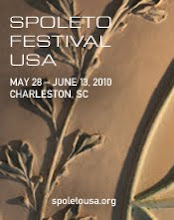Although the composer’s Symphony No. 1 will be new for the orchestra, it will be even newer for music director Morihiko Nakahara. This will be the first time he has conducted a Mahler symphony. It’s a little intimidating (especially with all the instructors Mahler, who was a conductor, put in the score), but Nakahara has been waiting for a long time.
“I’ve liked his music since I was in high school,” Nakahara said one morning between bites of a bagel with egg at a Main Street café.
Not exposed to much pop music when he was young, Nakahara found in Mahler music that spoke to his own youthful anxieties and hopes. And like all good art, it keeps giving to those of all ages.
The concert will have another first with the orchestra playing music by Philip Glass. It will play two movements from Glass’ 1997 “Heroes” which was inspired by music David Bowie and Brian Eno created during the late 1970s.
All these firsts put a big bow the package that is Nakahara’s first year as new music director.
Anyone who has been around Nakahara during his time here, and that’s a lot
 of people, can tell he’s enjoying himself. Although he still works in Spokane, Washington, he has spent most of his time in Columbia. He plans to do the same next year.
of people, can tell he’s enjoying himself. Although he still works in Spokane, Washington, he has spent most of his time in Columbia. He plans to do the same next year.“It has really exceeded my expectations,” he said of coming to Columbia. “I feel so welcome and embraced. It’s been a touching experience.”
And for those who have heard the Nakahara-led orchestra the feeling is mutual.
A bit about Mahler and the First Symphony
The First is not as big and convoluted as some of Mahler’s later pieces, but as Nakahara noted this week: “Mahler was a complicated guy.”
Few first symphonies are as strong as this one, Nakahara said.
It draws upon folk song and often provides a parody and then a parody within a parody, Nakahara said.
“People really didn’t know what to do with it.”
Its history is complicated too. Mahler started writing it in 1884 when he was about 25 and finished a version with version with five movements in 1888. During the next decade he revised and cut and in 1899 the version we know was published. (His second, third and fourth symphonies were also completed during the 1890s.)
By the time he was writing these symphonies, Mahler was already an in-demand conductor and his conducting was more appreciated than his music. In 1897 he became conductor of the Vienna Opera, an Imperial post of the Austro-Hungarian Empire. He conducted the Metropolitan Opera and New York Philharmonic for a year each before his death at 50 in 1911.
His music didn’t find much favor during his lifetime; he was ahead of his time. He did push the limits of what was tonally accepted and his use of pop tunes was seen as vulgar by some.
Other forces were at work too.
His music calls for a big orchestra, with extra percussion and brass. World War I and the Great Depression were barriers. Then there was that Nazi thing.
Although Mahler had converted to Catholicism, which he had to do for the Vienna Opera post since Jews couldn’t hold Imperial posts, this didn’t count for much with Joseph Goebbles, German Minster of Culture.
Even while Mahler’s music went unheard by the wider public for several decades, many 20th century composers were inspired by his work and his music was championed by conductor Leonard Bernstein and others. He has come to be seen as one of the greatest.
The S.C. Philharmonic http://www.scphilharmonic.com/ performs at 7:30 Saturday at the Koger Center. Nakahara will give pre-concert talks at 6:30 and 6:50 p.m. $12 to $42. (803) 251-2222 or http://capitoltickets.com




























